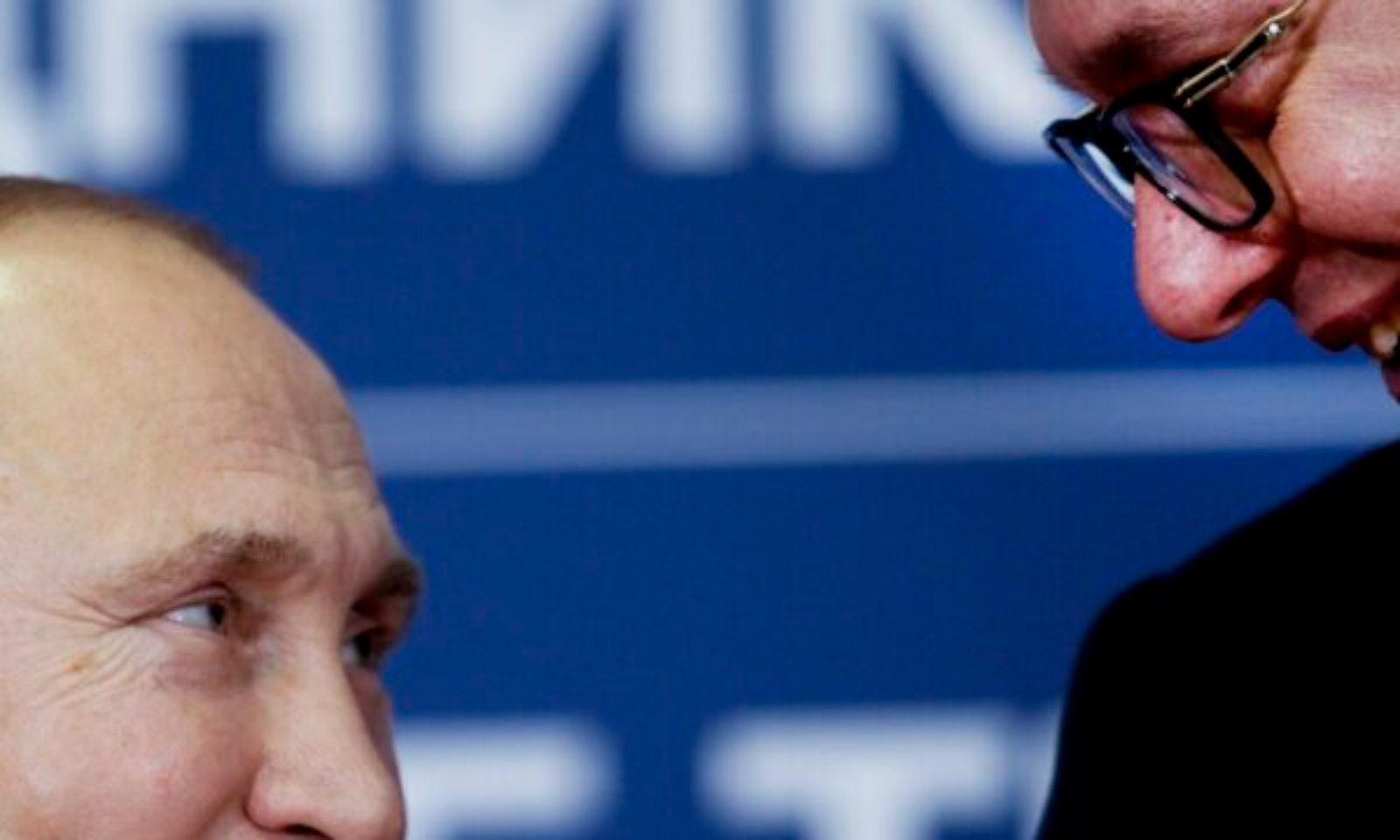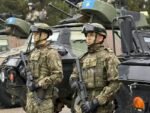Serbian President Aleksandar Vučić has cast doubt on his country’s future in the European Union, suggesting instead that Serbia might join BRICS, the global economic bloc organized by Vladimir Putin in Russia this week, reported the British newspaper The Times.
“The Times” states that Belgrade has long balanced between East and West, but with the war in Ukraine forcing the world to take sides, Serbia’s scales are increasingly tilting towards the Kremlin.
Russian and Belarusian dissidents hiding in the country told The Times that Serbian authorities had begun a crackdown on them at the behest of the Kremlin, while an opposition lawmaker accused Deputy Prime Minister Alexander Vulin of facilitating the release of a Putin ally from Italian custody and allowing him to fly to Moscow from Belgrade.
Serbia has also refused to join Western sanctions against Russia for its invasion of Ukraine, The Times reminds.
“Vulin is the man sent to Russia when it’s time to align with the Kremlin.” This week, he attended the BRICS summit in Kazan with Serbian defense and economy ministers. During the summit, he met with leaders from China, Belarus, Venezuela, and Egypt, expressing to Russian media his hope that Belgrade would join the bloc. Meanwhile, Miloš Vučević, the bespectacled Serbian prime minister, has been dispatched to European capitals to discuss EU membership. Last week, German Chancellor Olaf Scholz rolled out the red carpet for the Serbian prime minister, who insisted that Belgrade remains committed to Brussels. Serbia’s lithium reserves, necessary for electric battery production, are central to the EU’s plans for a green energy transition,” summarizes The Times on last week’s events.
It adds that both politicians, Vulin and Vučević, are “loyal aides to their increasingly authoritarian president,” who was unable to attend the BRICS summit himself due to a prior visit from Polish Prime Minister Donald Tusk and Ursula von der Leyen.
“Instead, he spoke with Putin on the phone on Sunday for the first time in two and a half years, thanking him for Russian gas and celebrating the close friendship between the countries. On the same day, he delivered a speech in Russian commemorating the liberation of Belgrade from the Nazis by Yugoslav partisans and the Red Army. On Tuesday, he declared that support among the Serbian people for BRICS—a group of countries that ‘blackmail us less’ than the EU—has reached 42 percent, adding that the bloc’s appeal is now at a high level,” The Times recalls.
“When people vote for a new president in two and a half years, this will be one of the main issues.” Who knows, maybe it will become a referendum point,” Vučić said, according to The Times.
The newspaper states that Russia and Serbia have long celebrated a close relationship due to their shared Slavic heritage, and Putin has used cheap gas supplies to consolidate his influence over the Balkan nation, strategically located between EU and NATO allies.
“Any loss for Russia will be a loss for Serbia,” said Vulin, 52, to Russian media last month, adding that the security services of both countries enjoy “excellent cooperation.”
The Times notes that the deputy prime minister accused the West of encouraging a color revolution in Serbia, which he would limit with Kremlin-style legislation banning civil society organizations as “foreign agents.”
It seems that Vulin is already backing his words with actions. Russian citizens expressing anti-war views or opposition to Putin are being expelled from the country, says Petar Nikitin, a prominent Russian dissident in Serbia, according to The Times.
“The authorities are clearly monitoring people’s public activities and maintaining a list of ‘undesirables,’” Nikitin told The Times. Elena Koposova, a mother of two who has lived in Serbia for five years, was ordered to leave after signing an anti-war petition. Last month, Anton Bobryshev was also ordered to leave after organizing a small rally in honor of the former Russian opposition figure Alexei Navalny, he said.
The Times also reminds that Vulin was the head of the BIA until the US sanctioned him last summer, accusing him of drug and arms trafficking and “facilitating Russia’s malicious activities.” He resigned but returned to government in May in a higher position as deputy prime minister.
Last month, Miroslav Aleksić accused Vulin of orchestrating the escape of Artyom Us, the son of Alexander Us, a board member of Rosneft.
The newspaper adds that the consequences of Serbia’s embrace of the Kremlin are life-and-death issues for some. It highlights the case of Andrei Gnyot, a Belarusian journalist who helped organize protests against Alexander Lukashenko and is now in Belgrade awaiting extradition to Minsk under an Interpol warrant.
“I have been a hostage for almost a year because even Interpol removed my name from the wanted list and confirmed that it was political persecution,” Gnyot told The Times.
“I have been contacted by representatives of the EU and the US; I know they have addressed the Serbian authorities with a demarche, but there have been no results,” he said.







